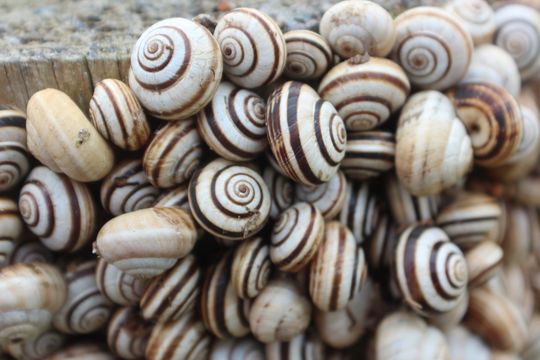Marsh Liptooth
(Daedalochila triodontoides)
Reproduction
Like most members of the family Polygyridae, Marsh Liptooth prefers to mate in warm, moist environments as observed in Allogona townsendiana, which is also a member of the family Polygyridae (Steensma, et al., 2009). For optimum mating to occur, it has been observed that land snails tend to form clusters in order to increase the overall number of snails produced, strength and condition, and even the length of their life (Steensma, et al., 2009).
Because of the preferred mating conditions, there is only a certain time of year that snails can mate. The time of year greatly depends on the geographical location since not every region in the world has the same environment at the same time of the year. Yet, depending on the year and geographic location, mating has been observed to take place as early as February in regions such as Oregon (Steensma, et al., 2009). However, in Oregon, peak mating times usually occur in March and April because of the ideal conditions preferred by snails (Steensma, et al., 2009). Soon after mating takes place, hatching occurs, which peaks in June in regions with similar environmental conditions as in Oregon, and can take several weeks for all of the snails to hatch (Steensma, et al., 2009).
Just like the environmental conditions for the snails to be able to mate can vary from one species of snail to the next, so can the length of time of the actual mating process. For instance, on average, the mating process amongst different species of snails has been observed to last at a minimun of about four hours (Steensma, et al., 2009). However, mating can last longer than 24 hours in certain land snails like the Roman snail Helix pomatia (Steensma, et al., 2009). Yet, in the uncommon New Zealand land snail Paryphanta busbyi watti, the mating process has been known to last several days (Steensma, et al., 2009). In sum, the actual process of mating and even the time of year it takes place can vary greatly from one species of snail to the next.Adaptations is next, or go back to the home page!
